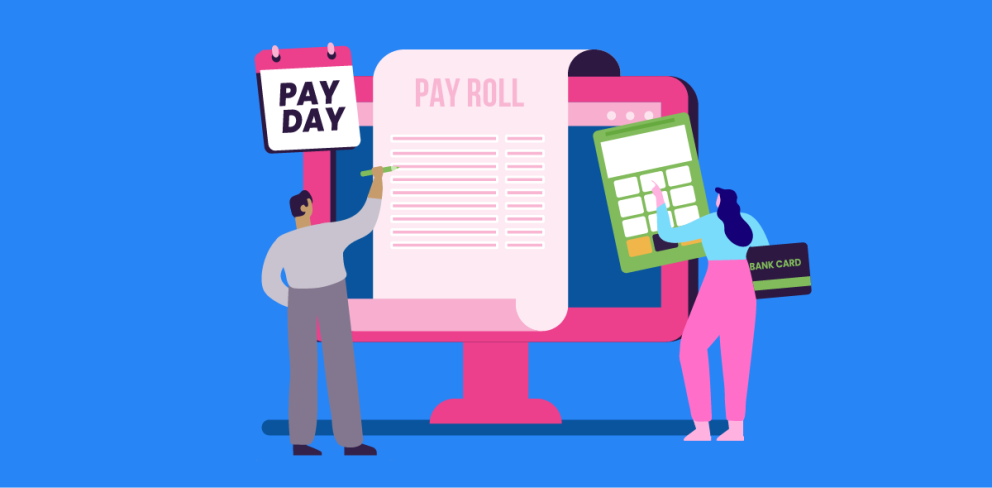3 Key Ways To Keep Your Payroll Accurate


Having an accurate payroll is essential for running your business effectively. Not only does it ensure that your staff are paid correctly, but it can also protect you from legal action and save you money in the process.
We’ve had a look at the key things to consider to keep your payroll accurate.
Follow The Legislation
Staying up to date with current legislation is perhaps the single most important step you can take. The rules vary depending on where you're based, so it’s worth familiarizing yourself with the ones which apply to you; getting them wrong can have expensive consequences. In the worst case, non-compliance can open you up to lawsuits from disgruntled employees or legislative bodies. You definitely don’t want that. The main factors to consider include making sure that staff are categorised correctly, that records are easily accessible and orderly, and that they’re kept for a suitable period of time.
Making sure that the person responsible for your payroll also understands the rules is therefore extremely important. If that’s sounding very scary then it may be worth considering outsourcing to an accountancy firm. While this is an expensive option it’s often a lot cheaper than the legal fees you’ll incur if the responsible person isn’t quite responsible enough.
If the cost of hiring accountants would be more than you’re currently paying the rest of your team combined then you might want to look at payroll software instead. While there are lots of options out there good payroll software should help you to stay up to date with current legislation while guiding you through the payroll process to make sure that you stay compliant. It might not actually run payroll for you, but it should come pretty close.
Have A Clear Process
One of the quickest ways to mess up your payroll is if your team don't understand how the process works. Or if there isn't a process at all. That works too. Understanding who’s responsible, and what they’re responsible for, is essential to streamline the process and keep your payroll accurate. Once you’re clear on the relevant legislation consider writing up a formal process for payroll and timesheets, including how employees should go about submitting timesheets, how any expenses will be calculated, how overtime and absences are logged, and what will happen if the process isn’t followed for any reason.
Your process should also encourage consistency; running payroll at regular intervals so that employees know when timesheets need to be submitted will help with this. You may even consider sending reminders out to staff when timesheets are due, to save having to make amendments afterwards. Having a consistent onboarding process for new staff will help, too; make sure that employees have provided their payment details before they start to ensure that they’re paid correctly from the off.
Keep Your Data Accurate
Even with the strictest process in the world, it can still be tricky to keep data accurate. Records are lost, employees pad their hours or even clock in and out for one another, and typos do happen. Traditional paper-based records are particularly prone to inaccuracies, as well as not always being overly secure; for every company with a comprehensive filing system locked in a safe, there’s one with loose timesheets scattered around the office.
Timesheets are often the hardest element to keep accurate because you’re relying on your team to be as organised as you. They’re also crucially important; running payroll is impossible if you don’t know how many hours each employee has actually worked. Without accurate timesheets you can end up paying for scheduled hours which don’t reflect on-the-day changes.
As with the main payroll process, the answer to your timesheet woes could be software. Systems which allow employees to clock in and out on their phones can help to make sure that the process is remembered, while location-based restrictions and unique employee accounts can make sure that the person clocking in is who and where they say they are. If the timesheet software covers your schedule as well then all the better; you can immediately track any overtime, lateness, breaks, or missed shifts rather than waiting to be told. Last-minute changes can also be recorded and the system can inform your timesheets so that you can export the records in one fell swoop. Many timesheet systems are cloud-based too so you don’t have to worry if you spill something on your computer. (Or at least no more than usual.) Instead, you can log in from anywhere, safe in the knowledge that your data is secure and auditable.
We are of course horribly biased, but if you’re looking for ways to keep your payroll accurate then Shiftie might be able to help. With cloud-based scheduling, clocking in and out, and timesheets (and pretty much everything else we’ve just listed, funnily enough) we can make sure that your staff timesheets are ready and accurate when you come to run your payroll. Being scheduling software we can’t actually run the payroll – or your business – for you but don’t worry, we’re working on it.




